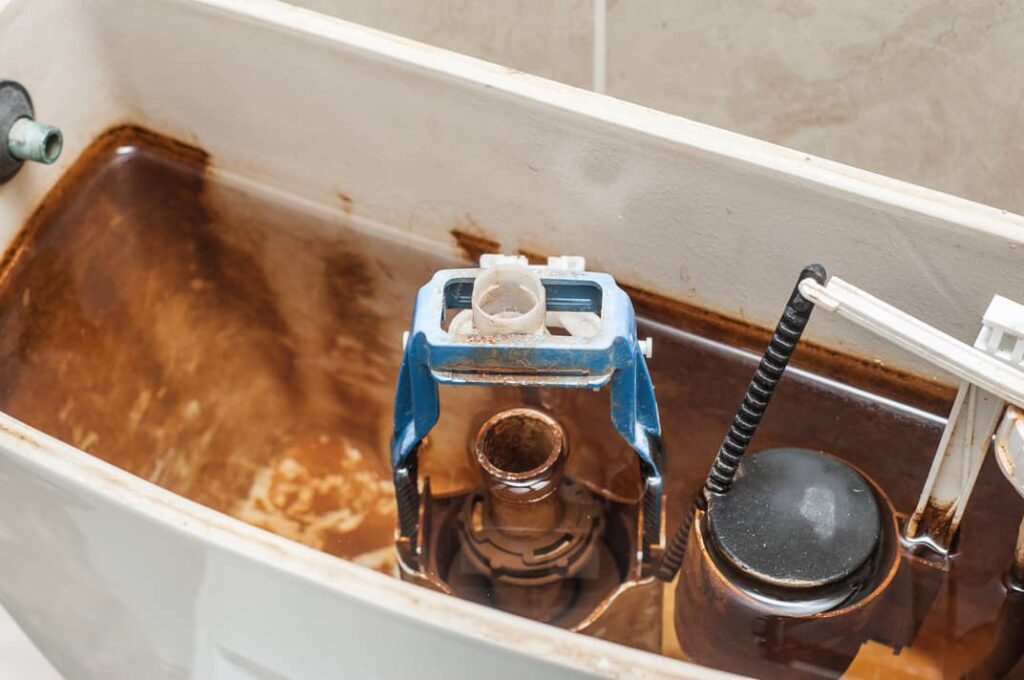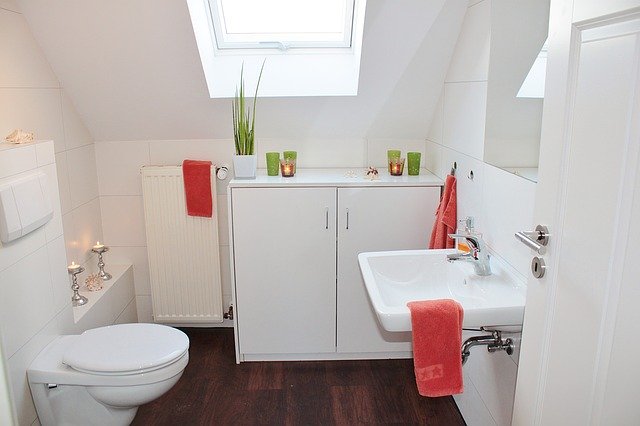Have you ever flushed your toilet only to be met with an unwelcome surprise—a bowl full of brown water? It’s an unsettling sight that can leave you wondering what exactly is going on in your plumbing system.
You’re not alone in this concern, and there’s no need to panic. Understanding why your toilet water is brown is the first step in resolving the issue. This mystery can often be linked to several common causes, each with its own straightforward solution.
We will dive into the possible reasons behind this unpleasant occurrence and what you can do to restore your toilet to its crystal-clear state. If you’re keen on keeping your home in top shape, you’ll want to read on to uncover the secrets behind this brown water phenomenon and how to tackle it effectively.

Credit: scotthale.com
Table of Contents
Common Causes Of Brown Toilet Water
Rusty pipes can turn toilet water brown. Iron in pipes rusts over time. This rust mixes with water. The result? Brown water in your toilet. Older homes often have this problem. Replacing rusty pipes can help. It’s not just a color issue. It can also damage fixtures.
Sediment can settle in your pipes. Tiny particles like dirt and minerals. These can turn your water brown. Flushing your system can help. Regular maintenance keeps sediment away. Clean pipes mean clear water.
Problems in the main water supply can affect your home. Sometimes repairs stir up sediment. This can cause brown water in your toilet. It’s usually temporary. Check with your water company if this happens. They may have updates or fixes.
Corroded fixtures can cause brown water too. Metal fixtures can wear out. This corrosion can mix with water. It changes the water color. Replacing these fixtures can solve the problem. Keep your bathroom shiny and clean.
Impact Of Brown Water On Health
Brown water can carry harmful bacteria and germs. Drinking it can cause a stomach ache or even a fever. It’s important to avoid using brown water for cooking or drinking. It might have dangerous metals too. These can make you feel sick over time. Always check your water color before use.
Bathing in brown water can affect your skin. It may cause itchiness or red spots. Your hair might feel sticky or rough. This water might carry dirt and other particles. These can make your skin and hair feel unclean. Be cautious while using it for bathing.
- Always use clear water for drinking.
- Boil water if unsure about its safety.
- Use a filter to clean the water.
- Store water in a clean container.
- Check pipes for any rust or damage.
Immediate Actions To Take
Start by flushing the toilet once or twice. This helps to remove any debris or sediment. If water remains brown, do not worry. It might be more than just dirt.
Check the water supply lines for any visible leaks. Look for rust or corrosion. These can affect water color. Tighten loose connections if needed. Ensure pipes are clean and well-maintained.
If the problem persists, reach out to a professional plumber. They know how to handle such issues. Plumbers can identify and fix underlying causes. They ensure your toilet water is clean and safe.

Credit: avalonhomeinspections.net
Long-term Solutions
Old pipes can cause brown water. Rust builds up over time. It’s important to replace old pipes. New pipes help keep water clear. Copper or PVC pipes are good choices. They don’t rust easily. A plumber can help with the replacement.
Water filters clean the water. They remove dirt and rust. Install filters on taps or main water lines. Filters need regular cleaning. This keeps them working well. Clean water is safe and clear. It’s good for health and hygiene.
Regular checks keep plumbing in good shape. A plumber inspects pipes and connections. Fix leaks and blockages early. This prevents bigger problems. Keep an eye on water color. Routine checks save money over time.
Preventive Measures
Brown toilet water often signals rust in pipes or a malfunctioning water system. Regular plumbing checks help prevent these issues. Flushing the system and cleaning the tank can maintain clear water.
Regular Plumbing Inspections
Regular checks help keep your plumbing healthy. A plumber looks for leaks and rust. This can stop brown water before it starts. It’s like a doctor check-up for your pipes. Don’t wait until there’s a problem. Catching issues early saves money and water.
Water Quality Testing
Testing the water helps find hidden problems. It shows if there are bad minerals or dirt in the water. It’s like a report card for your water. You can buy kits to test at home. Or, have a professional test it for you. Clean water is important for health.
Maintaining Water Softener Systems
Water softeners remove hard minerals. Hard water can make pipes rusty. This rust can turn water brown. Keep the softener clean and full of salt. Check it often to ensure it works well. Proper care can keep your water clear and safe.

Credit: www.reddit.com
Frequently Asked Questions
What Causes Brown Toilet Water?
Brown toilet water can be caused by rust, sediment, or mineral buildup in pipes. It may also result from water supply issues. These can affect the color and quality of the water. Regular maintenance and inspection can help identify and resolve these issues promptly.
Is Brown Toilet Water Dangerous?
Brown toilet water isn’t usually harmful, but it indicates possible plumbing issues. Contaminants like rust or sediment can affect water quality. It’s essential to investigate and resolve the cause to ensure safe and clean water. Consulting a plumber can provide a definitive assessment.
How Can I Fix Brown Toilet Water?
To fix brown toilet water, start by flushing the system to clear sediment. Check for rusted pipes or faulty water heaters. Regular maintenance can prevent mineral buildup and rust. If problems persist, seek professional plumbing assistance to ensure safe and clean water supply.
Can Brown Toilet Water Stain My Toilet?
Yes, brown toilet water can stain your toilet over time. Minerals and rust in the water can leave marks on porcelain surfaces. Regular cleaning and addressing the water discoloration source can prevent staining. Use appropriate cleaning agents to maintain a clean toilet.
Conclusion
Brown toilet water can be alarming. The cause is often simple. Rusty pipes or mineral buildup are common culprits. Check your water supply and pipes first. Regular maintenance prevents issues. Flush your toilet often to keep water clean. If the problem persists, call a plumber.
They can find and fix the issue. Clean water is essential for health. Keep your plumbing in good shape. Save money and stress by acting early. With these tips, your bathroom will stay fresh and safe. Remember, clear water means a healthy home.






